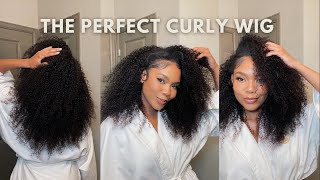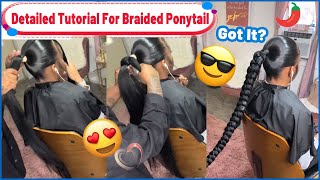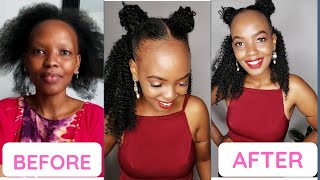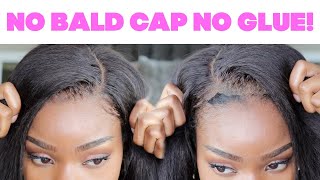Are Traditional Perm and Set Salons Feeling The Pinch Due To The Natural Hair Movement?
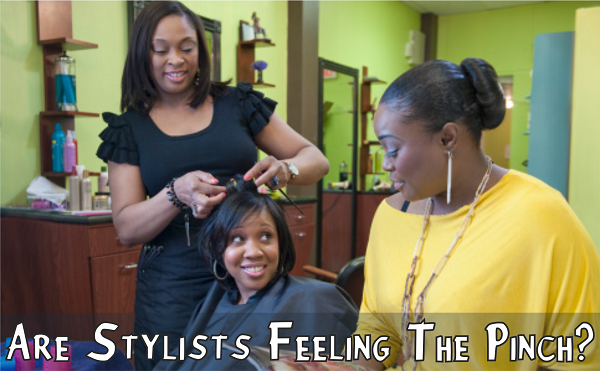
It’s sad whenever I see any black woman in business fail or start to wane because sometimes it is through no fault of her own. It happens daily, I’m sure all around the world or just in this country but it stings. I want us all to succeed whether you are at the top of a corporate Fortune 500 company, a small business owner or a stay-at-home mom with a side hustle. Whatever you are doing to put food on the table and keep a roof over your head is honorable and needs to be supported.
One foundation that has been around and is a symbolic presence within the black community would have to be the black hair salon. It’s been a gateway to entrepreneurship for thousands if not millions of women whether they are renting a chair or own the shop. Similarly it’s also been a haven for the black woman to transform into her beautiful self with a wash and style, a touch-up or a special occasion hair do. The salon is never boring and always full of laughter and even some pain as we connect with each other. The black hair salon has surely marked itself in our hair history.
Despite the richness of it’s legacy, the popularity of the traditional black hair salon is on the decline. It’s dying, or at least what it meant or started out to be is all but non existent. Just a few days ago at an event I was listening to the tear-filled cries of a salon owner who was in desperate need of reviving her once thriving business.
You see, she was the traditional salon, the one where you could get a perm, a touch-up, a roller set or a banging style. The major ingredient that held the salon together was Lye. Of course not all women who go to black hair salons were getting their hair relaxed but a big portion were and then there was the usage of the hot comb, curling irons* and dryers.
The allure of the shop was the fact that you came out looking and feeling like a beauty queen and if you had the right stylist you knew before hand just what to expect. These trained professionals were making money while adding to their community through jobs and money going back into the community.
It was a good thing! A solid fixture that has grown bigger and better throughout the years but probably for the first time we notice a dying industry and it all has to do with the natural hair movement.
Oh, I’m not claiming the natural hair movement is bad, killing the black community or is the devil. I’m merely stating the obvious, more black women are moving away from the creamy crack and traditional salons. Relaxers have always had the possibility of doing harm to our tresses, they can be bad for our hair, our skin and our bodies but we have resigned ourselves to believing that they were a necessary evil to tame our tresses.
It was taught to us at a young age to get our tresses relaxed but as a wave of information, admiration and understanding came about, the desire to relax was, well ‘relaxed’, no pun intended.
The teary-eyed salon owner I mentioned above was at her wits end. She wanted to win back her business, her thriving business that was once flourishing but as the love for bone-straight tresses began to decline, so did the need to patronize her shop. I don’t know if she saw the writing on wall early on but ignored it or saw natural hair as a trend or fad that was bound to be short-lived.
One would expect that among the regular reasons for business decline or recessions would be bad business practices or even bad customer service, and these might be easy fixes, but this time round things are different. So it perfectly fair that the warnings may have been overlooked, ignored or even laughed at by many salon owners.
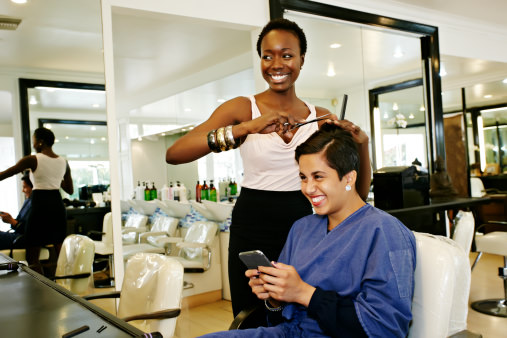
The natural hair movement has been steady and strong for about a decade and turned into full blown bloom around 2010 with newly naturals taking over in fashion, style, corporate America, they are demanding and deserving attention and love. This love has increased the demand for products, information, styles, and maintenance that the traditional hair salon was unable or even unwilling to give.
In this day and age of technology we see the boom in natural hair bloggers, vloggers and authors who are giving their knowledge on natural hair and how to take care of it yourself. Yes, most naturals are taking care of their own tresses and can do anything from trimming to styling to coloring all on their own without the need of the traditional salon.
This poses a dilemma for the hair stylists who are still relaxing and still catering to a group of women who are dwindling. It’s not just because of natural hair though, many women are sporting wigs* and weaves* even at the high prices of units and service because they like the convenience. When you spend THAT much money you tend to want to save in other areas so you are either not getting your hair fixed at the salon as often or just decided to do away with the service altogether . Either way, the average woman is probably not going to their regular stylist as often.
There is a need for the traditional hair stylist to adapt to the changing tide on the hair norms for black women. Natural hair is not a fad but rather a lifestyle change and despite the long and prosperous hay day of the black hair salon, if the vast majority want to reclaim their community status then they must learn how to take care of natural hair.
It’s a no-brainer and as I listened to the crying shop owner cry freely while expressing her concern, I couldn’t help but be grateful for her wanting to learn how to adapt. she wanted the knowledge to gain back her clients. The only problem is even if she adapts, will they EVER come back?
Do you think the natural hair movement has forever changed the financial powerhouse of the black hair salon?

